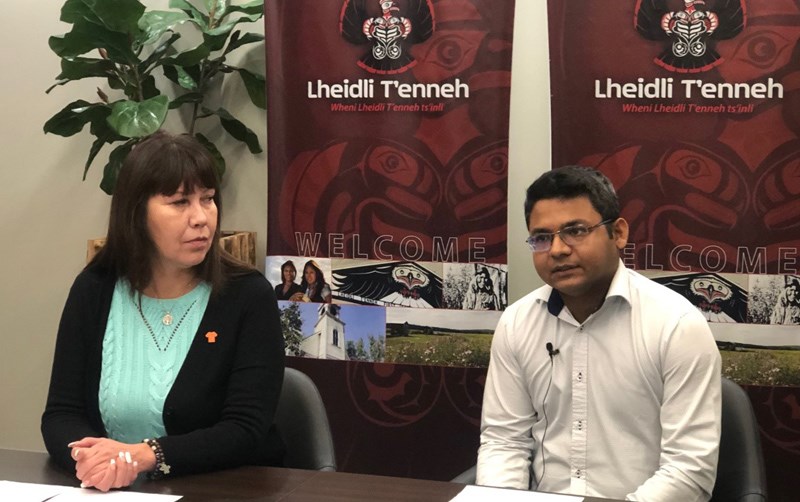Lheidli T’enneh First Nation’s southside and northside neighbourhoods have been without clean drinking water since the summer, and as a result, members are forced to use bottled water.
Chief Dolleen Logan has said Lheidli T’enneh’s patience has run out and she is calling on the federal government to provide the required funding needed to replace the water system.
Lheidli T'enneh has had ongoing problems with its water system and the Nation has been under a “Do Not Use” advisory since July 2021 in both northside and southside of portions of the subdivision.
This means the water is safe to wash and clean with but not to consume and Lheidli T’enneh has been providing bottled water for its members bi-weekly with unlimited refills.
“What we need is a new system altogether which brings in state-of-the-art technology because water is not something we can negotiate about,” said Zawad Abedin, Lheidli T’enneh’s manager of capital projects.
“We need to have water which is safe. There is no alternative.”
Abedin explained the issue is the groundwater has a high concentration of manganese, over 1 mg/l, and the current system of water softener and absorption filters frequently fails to perform to remove the manganese.
“The system we are having right now is based on the filox and softener and that is not good enough when you have the manganese concentration above 1 mg/1 which is quite high compared to the B.C. average of 0.3,” said Abedin.
Even after the current system was serviced by professionals the system could barely reduce the manganese level below the maximum allowable concentration and did not meet levels acceptable by Health Canada.
“It’s a problem with the technology. We are using technology from 60 years back so we can’t rely on that. All we are doing is just band-aiding. “
He explained that Lheidli T’enneh has submitted a feasibility study funding request to Indigenous Services Canada (ISC) for a new water system.
“We have done whatever we could from our side so we are still struggling to get the funding from Indigenous Services Canada for this water issue,” said Abedin.
"Another important point is that you can’t boil water with manganese in it. Boiling makes it worse so they literally don’t have any other option. "
Lheidli T’enneh’s reserve is divided by the Fraser River into two neighbourhoods, the southside and the northside, with no bridge connecting them, the Nation would also require funding for two separate water systems.
“The one person we can blame is Trudeau,” said Chief Logan. “In 2015 his campaign was to promise the number one priority of his is going to be First Nations drinking water. As of August, of this year there are still 93 Indigenous communities across Canada still under a boil water advisory.”
She said Indigenous leaders have had enough empty promises from the Prime Minister and is calling for the funding needed to build a new drinking water system.
“There’s only so much we can do until we get the funding that was promised in 2015, until then we can only basically tread in muddy water,” said Logan.
“It is simple drinking water. We are not asking for the world. All we want is clean safe drinking water for our communities - We have waited long enough. Not only our members but the 93 other Indigenous communities deserve basic water.”
However, in September ISC did approve funding for the design stage of a new waste-water system, which Lheidli T’enneh hopes to have by the end of 2022, if the funding follows.
Another issue Lheidli T’enneh faces is the need for further support for retaining technically skilled human resources to better manage the ongoing maintenance of these projects.
“This administration has been struggling for years for having technical people on board just because it is expensive and difficult to retain people who are experts because we run out of our limited resources at times,” said Abedin.
“That is something we would like to get addressed through funding agencies. But with the limited capacity we have, we are going above and beyond so we can ensure that level of service and promise to community members.”
In terms of drinking water, Lheidli T’enneh has applications filed with ISC for funding for a new system but has no timeline as to when the federal department will address the issue.
“We are not the only ones who have the water issue,” added Logan. “The waiting game is going to be a long waiting game, unfortunately.”



